Gazprom-RusVelo: A closer look at the Giro d'Italia's surprise wildcard
Team manager on Italian links, Katusha and doping cases
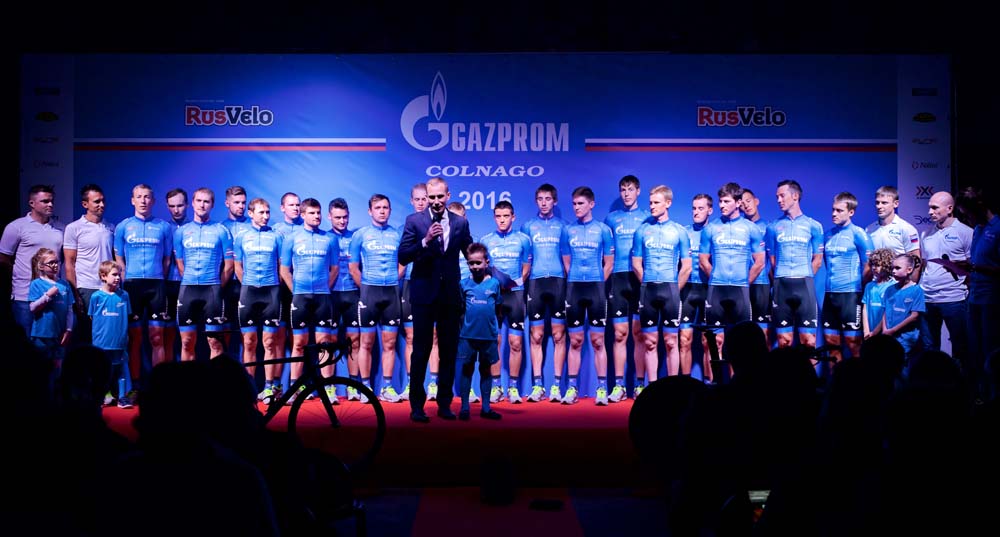
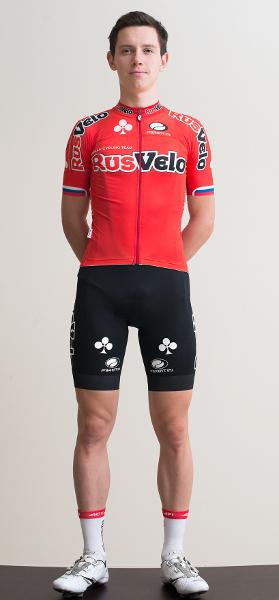
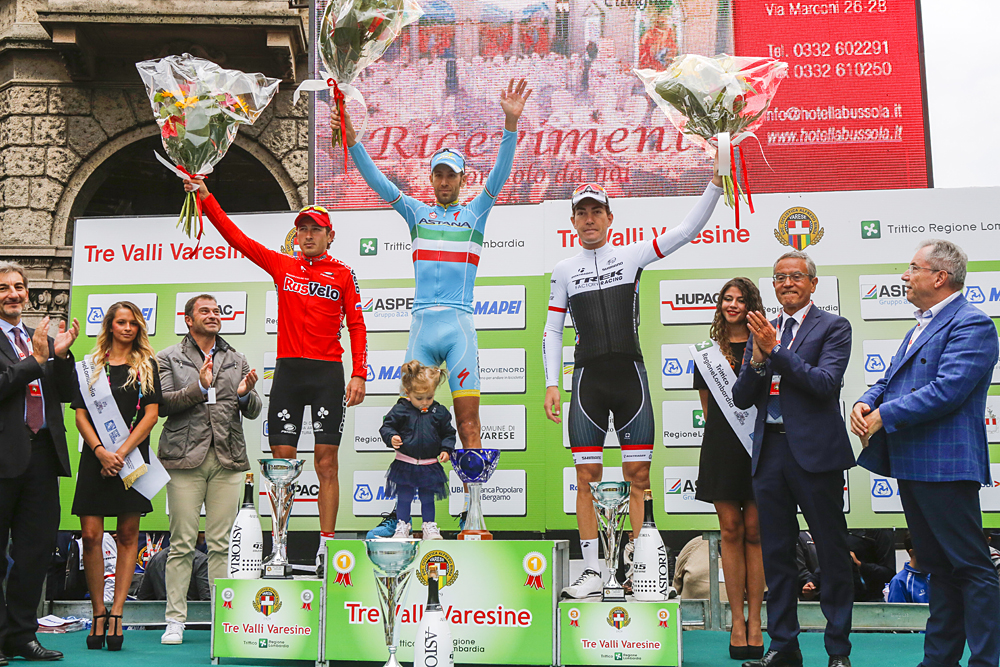
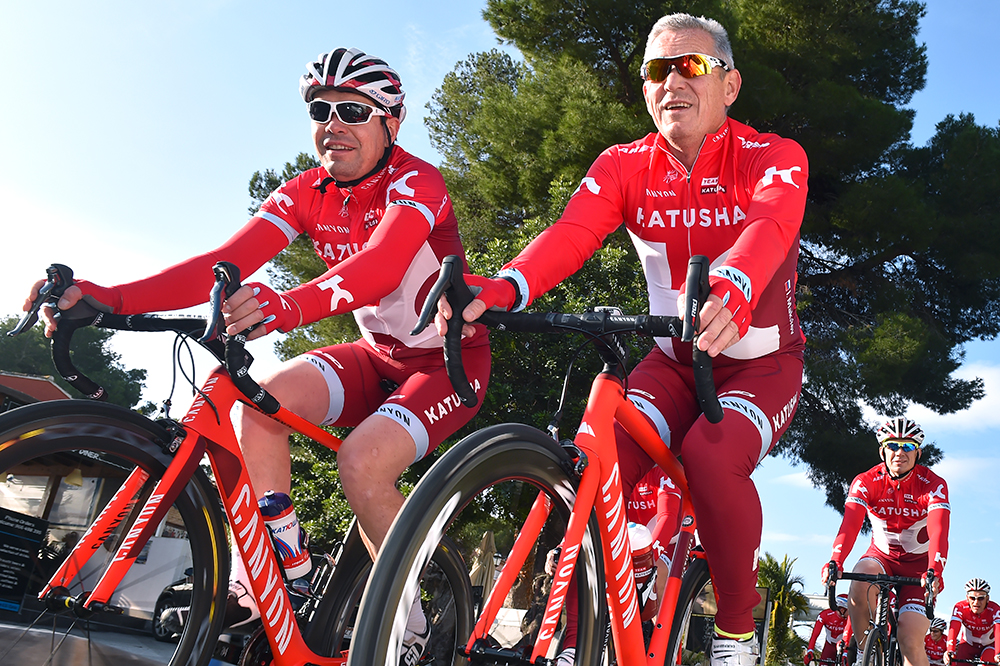
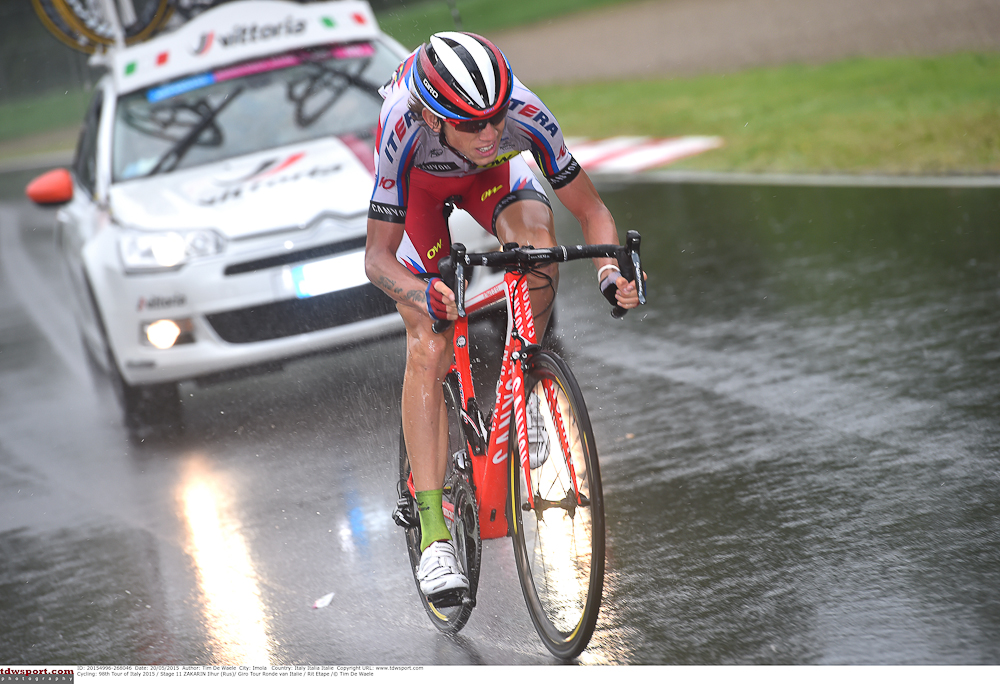
RCS Sport’s decision to invite Gazprom-RusVelo to the 2016 Giro d’Italia figures as one of the more surprising wildcard decisions of recent years, so much so that even the Russian Pro Continental team’s manager admitted that they had applied more in hope than in expectation.
“We sent in our dossier to the organisers but to be honest we weren’t at all sure of our chances because there were lots of strong Italian teams out there,” Renat Khamidulin told Cyclingnews on Monday evening.
A rider with the Mapei-Grassi amateur squad in Italy and a Eurosport commentator before taking over at RusVelo in 2013, Khamidulin is under no illusions as to why his team was given the nod. In the grand scheme of things, RCS Sport will have deemed the patronage of Russian energy giant Gazprom and some major players in the Italian bike industry as being of greater importance than the team’s intrinsic sporting value.
“Our service course is in Italy and all of our technical sponsors are Italian, like Colnago, Nalini and Campagnolo, so for that reason I was hopeful,” Khamidulin. “The link to so many big Italian sponsors was an advantage for us and would have been significant for RCS too. But we want to show with our results in this race that it was right to invite us.”
Gazprom has backed RusVelo – at least through the wider Russian Global Cycling Project that encompasses the Katusha team – since its foundation in 2012, but only stepped up to title sponsorship ahead of the new campaign. In hindsight, the team presentation, held in Desenzano on the shores of Lake Garda in December, seemed to suggest greater ambition in 2016. Among those to attend were UCI management committee members Igor Makarov, David Lappartient and Renato Di Rocco.
“Gazprom’s sponsorship is very significant for the whole of cycling, because in cycling there’s no other sponsor as powerful as this: Gazprom is the 17th biggest company in the world, with more than 300,000 employees,” Khamidulin said. “We all know there’s a lack of money in cycling, there are always sponsors leaving, so I’m very happy that we’ve brought such an important sponsor into cycling.”
As befits a team founded with the remit of preparing local talent on track and road for the Olympic Games, Gazprom-RusVelo’s roster is made up entirely of Russian riders, but despite the lack of marquee names, Khamidulin vowed that his squad will not line up in May purely to make up the numbers. Much like Androni Giocattoli, who they appear to have beaten to the final berth, Gazprom-RusVelo have no general classification threat and will seek out opportunities everywhere they can.
Get The Leadout Newsletter
The latest race content, interviews, features, reviews and expert buying guides, direct to your inbox!
“We have a lot of young riders but some experienced guys too. We’ve got Sergi Firsanov, for instance, who was second at Tre Valli Varesine behind Nibali last year. He can be competitive on some of the tougher stages. Then we’ve got a rider like Artem Ovechkin, who is the national time trial champion, and a lot of passisti, who will be capable of going in breakaways. The one thing I can guarantee right now is that we’re really going to battle very hard to make it into breakaways and to animate the race on every stage.”
Conflict of interests?
While not tethered to the Katusha team in quite the same way as the now defunct Itera Continental team, Gazprom-RusVelo is a part of the same overriding Russian Global Cycling Project, headed by federation president Igor Makarov.
The team’s own website describes itself as the “brainchild” of Makarov, who also happens to own the Katusha team. UCI rules prohibit teams with the same paying agent or main sponsor from participating in the same race, and while Gazprom-RusVelo and Katusha’s structures satisfy the letter of that particular law, does their participation side by side at the Giro (not to mention at other events over the past four years) contravene its spirit?
“No, our team is absolutely independent of Katusha,” said Khamidulin, dismissing the idea that his team might, for instance, ride in the service of Katusha leader Ilnur Zakarin – who himself graduated from the RusVelo programme – at the Giro.
“Absolutely no, it’s not possible. We ride for ourselves and we’re looking to get results for ourselves. Things like that should never happen in cycling and the UCI does a lot of work to prevent it from happening. We’d never ride in the service of another team.”
Indeed, Khamidulin maintains that Gazprom’s support means that his team will have loftier ambitions beyond simply developing talent in the years to come. “We had to let Zakarin go because we couldn’t give him the chance to ride big WorldTour races, but now this Giro invitation might open the door to other races and give us a chance to hold on to our riders for longer,” he said. “We want to show Gazprom that we can get a lot of results and grow as a team.”
Doping
Since its foundation in 2012, RusVelo has made more headlines for its spate of doping cases than it has for its results. In 2013, Valery Kakov tested positive for the black market substance GW1516, before Andrey Solomennikov, Roman Maikin, and Artem Ovechkin all returned positive tests for fenoterol, a bronchodilator.
That summer, RusVelo became the first team to suspend itself under the Movement for Credible Cycling’s voluntary rules, and later fired team doctor Sergei Liakhov. Yet last season, the team had its fifth doping case in barely two years, when Petr Ignatenko tested positive for human growth hormone. The bulk of the Giro's recent doping cases have come from invited teams, yet RCS Sport clearly saw past any reservations it may have had regarding Gazprom-RusVelo's compliance with the ethical criteria of the wildcard process.
“We’ve always fought against doping but it’s a very difficult battle, because it’s usually an invisible enemy,” Khamidulin said. “We have a system in place now that allows us to see where our riders are 24/7 and we check all of their training data.”
Following Ignatenko’s positive test last year, Khamidulin said, the team looked to keep an ever-tighter rein on its riders. With the roster all based on the shores of Lake Garda, the riders are now apparently in what is almost a perpetual training camp between races.
“The thing about Ignatenko is that when you bring in a rider with four years of WorldTour experience, you expect him to be clean because he’s been tested on the biological passport. You expect him to lead by example, and instead it was the opposite. When we analysed it, we saw that Ignatenko had asked to go off and do a training camp alone in the mountains, and we allowed it because we thought that he was capable of looking after his own training, but that’s where it all happened,” Khamidulin said.
“We learnt subsequently that we can’t leave riders such freedom. So we’ve invested a lot of money in training camps, which we started in November and we basically haven’t let the riders go home for a period of more than three days. That way they’re always under our control. Because when a rider is left to his own devices, you never know who he could meet. It’s more secure when they’re with us.”

Barry Ryan was Head of Features at Cyclingnews. He has covered professional cycling since 2010, reporting from the Tour de France, Giro d’Italia and events from Argentina to Japan. His writing has appeared in The Independent, Procycling and Cycling Plus. He is the author of The Ascent: Sean Kelly, Stephen Roche and the Rise of Irish Cycling’s Golden Generation, published by Gill Books.